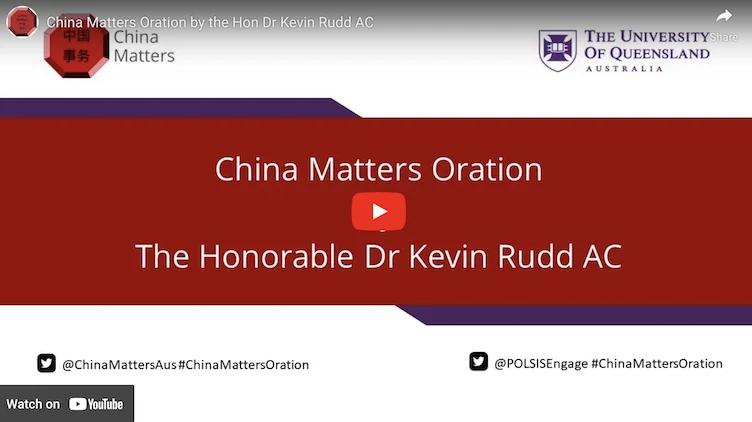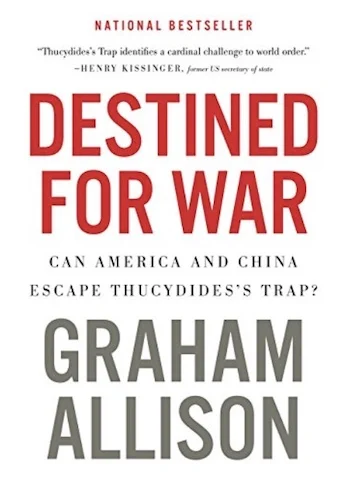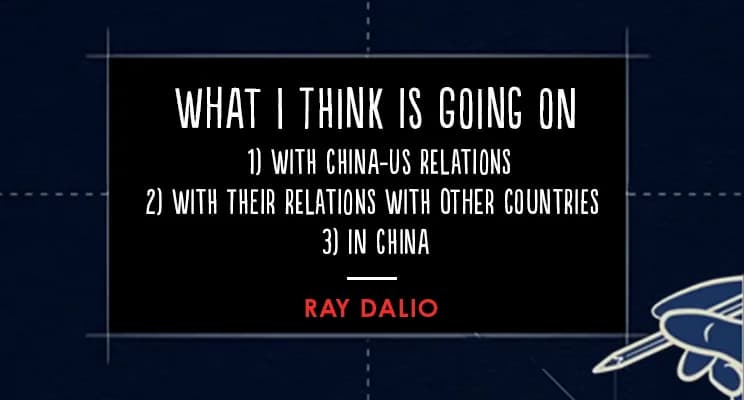Kevin Rudd's new book "The Avoidable War"
Kevin Rudd's hardened stance on Xi Jinping's China over five years reveals why U.S.-China conflict isn't inevitable—if we embrace "managed strategic competition."
Last week, Kevin Rudd published a new book titled "The Avoidable War: The Dangers of a Catastrophic Conflict between the US and Xi Jinping's China". I have been a long-time admirer of his work and his sharing so naturally, I watched both of the launch events: one in Washington D.C. and one in New York.
I haven't read the book yet so this is not a book review, nor I can say I recommend the book or not. This post is about my observations and learnings after watching the launch events:
-
The book title refer to "the US" and "Xi Jinping's China" and not "China". I don't think this is a mistake or pure coincidence. Kevin is purposeful in naming his book.
-
Kevin prepared remarks in both events are similar. This is to be expected given that they happened one day apart.
-
Kevin's stance towards China has noticably hardened over the past four or five years. Through the videos, you can get a good sense of why.
-
He is still very diplomatic. For example, when Ian Bremmer repeatedly tried to get him to answer the question of "If you believe that the Chinese, pretend that the biggest potential threat out there is that god forbid, given their system, they actually get dominant then as you are thinking about setting policy, not before the 20th party congress but for the next 10 years; as you think about setting out what we need to do, is it safer to err on the side of let's hit them harder to make sure that doesn't happen? In other words and I am not asking you to say this makes me a hardliner on China, I am asking if it nudges you analytically in that direction?" Kevin didn't answer both times publicly :)
- This doesn't mean that he doesn't have an answer privately.
- Kevin also repeatedly hinted that while under his proposed "managed strategic competition", may the best system win, he bets on the West.
-
The first event in D.C. was opened by Wendy Cutler, Asia Society Vice President and Managing Director, Washington, D.C., Office. The second event in New York was opened by Chan Heng Chee Global Co-Chair, Asia society and Ambassador-at-Large, Singapore Foreign Ministry.
- It is interesting to see because in this strategic competition between the US and China, Singapore has become more and more vocal, publically (vs just privately)
-
Kevin shared again his view about Taiwan, especially the time table from China perspective. This is consistent with his previous writing / talk. In this sense, there is no significant change on this topic, even with the tragic war going on in the Ukraine.
- While it is no doubt that nationalism sentiment is high in both China and the US, if we believe that Kevin's assessment is accurate regarding the timetable (at least a decade out for Taiwan) then domestically within China, one would expect a careful balancing act in news coverage and propaganda. Because one don't want the nationalism sentiment to "run too hot" domestically, which creates unhelpful pressure on the leadership to act faster.
-
One wonder about whether the current mainstream media coverage/political atmostphere in the US is helpful in
- Helping one to accurately see reality with regards to China?
- Providing the neccessary space for the two countries to embark on "managed strategic competition" framework?
-
I think Ian Bremmer asked an excellent question to Kevin, which is what worries Kevin that he could get wrong, given that he hasn't been to China for the past two years? Watch the video for his answer.
That's all from me for today. I am a student in this subject so I won't pretend that I know the answers to these problems, but I find the analysis fascinating.
Have you read Kevin Rudd's work on US-China dynamics? Do you think "managed strategic competition" is realistic, or are we past that point? I'd love to hear your perspective.
Cheers,
Chandler




